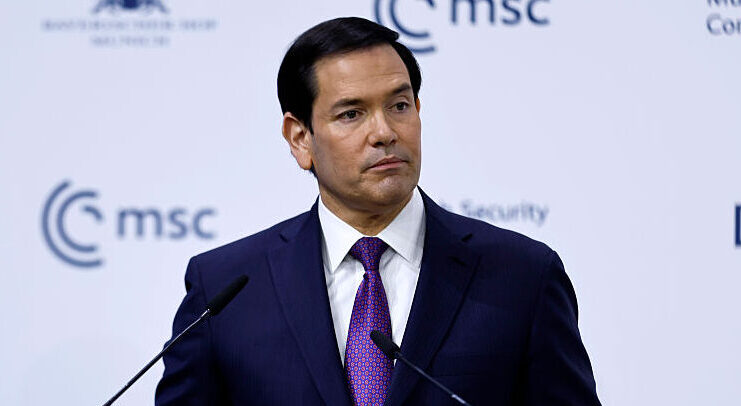Rising Inflation Could Spell Trouble for Families—Jumping by 4.2%, Highest Since 2008

Does it feel like your paycheck isn’t going as far? That shouldn’t be a surprise. According to the latest economic data, inflation has risen by 4.2%, the highest since 2008 when the recession hit. This could spell trouble for families, as financial resources are stressed in new ways as the country is still recovering from a pandemic.
So, what is inflation and how does that affect Americans?
Inflation, per Investopedia, is the “measure of the rate of rising prices of goods and services in an economy. If inflation is occurring, leading to higher prices for basic necessities such as food, it can have a negative impact on society.”
It can occur on any consumer product, and generally the wages don’t rise to keep up with the rising prices.
There’s also hyperinflation, where the cost of a product rises so sharply that it’s almost impossible for most people to pay for it. A great historic example is Germany post-World War I, where the German mark became so useless that people used it as wallpaper and children used it as building blocks.
In Communist Venezuela, inflation has risen by 10 million percent since 2018. This means that butter and powdered milk cost 400,000 bolivares, which Reuters reported was equivalent to $2 American dollars at the time. By the current exchange rate, a Bolivar dollar is equivalent to 0.0000000000035471852 U.S. dollars. Even with Venezuelan president Nicolas Maduro raising the minimum salary to 7 million bolivars, that’s still only a small fraction of a U.S. dollar and making every American a billionaire by Venezuelan standards.
Of course, hyperinflation is not happening in the United States, and hopefully would never happen in this country, but inflation and certain supply shortages are definitely a cause for concern and can negatively impact families and spending power.
Currently, the inflation rate has risen 4% from last year, which is a 12-year high. The last time inflation was this bad was during the recession in 2008.
In this year, energy prices have jumped by 25%, including a 49.6% increase in the cost of gasoline and 37.3% for fuel oil. There’s also the recent gasoline shortage in several southeastern states, which was caused by someone hacking the Colonial Pipeline that supplies most of North Carolina’s gas. No doubt, this chaos will bleed into other states and increase the gas prices even more.
This increase in cost will put an additional strain on families.
For those looking to purchase a used car might be in for a bit of a shock, as prices for those have jumped by 21%, including a 10% increase just in the month of April.
The construction industry has been hit especially hard, with lumber prices up 124% and copper, often used for wiring and piping, is up by 36%.
Another product seeing inflation and supply shortages is chicken, which is not only impacting grocery stores but fast-food restaurants like Chick-fil-A, Wendy’s, McDonald’s and others.
That shortage not only means that restaurants may run out of chicken related items, but it could also result in price inflation, as the demand exceeds the supply and businesses are having to pay more to get those essential items.
In addition to just the domestic problems, as inflation increases it becomes more difficult for America to trade abroad as the dollar isn’t as strong when compared to other currencies and doesn’t go quite as far. This is especially problematic when it comes to repaying foreign debt, as it requires more dollars to keep the balances current and our debtors happy.
All this means is that families are paying more for essential items, making it more difficult to spend money on fun things like restaurant visits, entertainment activities and vacations, which also contributes to the country’s economic growth and stability.
Photo from Shutterstock
ABOUT THE AUTHOR
Brittany Raymer serves as a policy analyst at Focus on the Family, researching and writing about abortion, assisted suicide, bioethics and a variety of other issues involving the sanctity of human life and broader social issues. She regularly contributes articles to The Daily Citizen and has written op-eds published in The Christian Post and The Washington Examiner. Previously, Raymer worked at Samaritan’s Purse in several roles involving research, social media and web content management. While there, she also contributed research for congressional testimonies and assisted with the Ebola crisis response. Raymer earned a bachelor of arts in history at Seattle Pacific University and completed a master’s degree in history at Liberty University in Virginia. She lives in Colorado Springs with her beloved Yorkie-Poo, Pippa.
Related Posts

10 Quotes from Secretary of State Marco Rubio’s Munich Address
February 16, 2026

Female Athletes Beg California Interscholastic Federation to Keep Boys Out of Girls Sports and Locker Rooms
February 16, 2026

On Presidents Day, Pray for President Trump
February 16, 2026

The Refreshing Patriotism of Olympian Jasmine Jones
February 13, 2026
